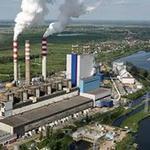國際刑警組織(Interpol)最近發表新的執法指南,指出因為全球碳交易市場的無形特質,使其易遭犯罪網絡利用,手段涵蓋證券欺詐、內幕交易、貪污、洗錢和網絡犯罪。
碳交易的目的是希望減緩氣候變遷,市場上並非以實物商品交易,而是交易可補償二氧化碳等溫室氣體排放的「碳權」(carbon credit)。碳交易同時也是全球成長最快的商品市場,世界銀行估計其現值約1760億美元。國際刑警組織表示,這種難以量化的市場,再加上大量金錢的投資與缺乏監督,使其成為犯罪溫床。
 這份國際刑警組織公佈的《國際刑警組織防制碳交易犯罪指南》由國際刑警組織「污染犯罪工作小組」(Pollution Crime Working Group)發起,並與加拿大環境部(Environment Canada)、挪威發展合作機構(Norwegian Agency for Development Cooperation)、荷蘭政府和美國環保署合作完成,內容檢視了碳交易行業可能被犯罪利用的領域、評估當前碳市場的脆弱度,並提供支持國家當局建立充分法規措施的資訊。
這份國際刑警組織公佈的《國際刑警組織防制碳交易犯罪指南》由國際刑警組織「污染犯罪工作小組」(Pollution Crime Working Group)發起,並與加拿大環境部(Environment Canada)、挪威發展合作機構(Norwegian Agency for Development Cooperation)、荷蘭政府和美國環保署合作完成,內容檢視了碳交易行業可能被犯罪利用的領域、評估當前碳市場的脆弱度,並提供支持國家當局建立充分法規措施的資訊。
該指南納入世界各地的案例研究,包括在司法監督不足下運作的溫室氣體會計事務所和國家機關,以及聲稱以抵消排放量回報投資的個人或公司,卻傳出偷工減料、提供不正確資訊或收受賄賂的情事。
歐盟排放交易計畫(European Union Emission Trading System,ETS)在2008~2009年間,遭到欺詐交易員欺騙長達18個月,導致好幾個國家損失約50億歐元的稅收。歐盟警察機構「歐洲刑警組織」(Europol)估計,有些國家的探交易市整體場成交量,有高達90%屬詐欺行為。歐洲刑警組織在2010年就搜查了全歐數百個辦事處,逮捕了100多人。
2010年12月,由於大量異常交易,義大利能源交易所停止所有碳權交易,幾個星期後,義大利財政警察(Italian Guardia di Finanza)突襲搜索全國八個地區的150家公司。法國、德國、西班牙、英國和其他國家同樣在2010年進行了多次行動,打擊參與碳權欺詐的犯罪網絡。2010年4月下旬,德國發起規模最大的行動,調查了包括歐洲和非歐盟國家共2500多名相關人士。
2011年1月,歐盟ETS(Emissions Trading System)遭碳權詐欺被揭露之後,各國政府即致力強化市場安全。歐盟委員會也在網絡攻擊出現於捷克、奧地利和其他國家市場後,立即禁止當地市場的「現貨交易」。
隨著ETS底下的八間碳權交易公司近期因為弊端而關閉,國際刑警組織期望這份指南能促成國際上對這些罪行採取執法行動。該指南的主要建議包括提高執法人員對碳交易犯罪的敏感度,並藉由分享碳權交易資訊來改善不同國家執法機構之間協調和溝通的管道。
為此,由歐洲刑警組織主辦、9月24~25日在荷蘭海牙進行的「歐洲刑警組織-國際刑警組織網絡犯罪會議」(Europol-Interpol Cybercrime Conference)將有來自世界各地的警政人員聚焦於碳權交易犯罪。

美國環保署(EPA)的資深刑事法律顧問暨國際刑警組織環境犯罪委員會主席勞特貝克(Andrew Lauterback)表示:「當務之急是杜絕碳交易市場的詐欺行為,這不只是為了保護金融投資,也因為全球環境仰賴於此市場。」勞特貝克提到,「《國際刑警組織防制碳交易犯罪指南》對於所有致力於保護環境的組織和機構而言,是非常重要的資源,也能促進全球對金融犯罪展現出凝聚力。」
國際刑警組織秘書長諾伯爾(Ronald Noble)表示,「危害環境的犯罪對社會整體的健康和安全影響廣泛,因此必須予以追究和懲處。」諾布爾補充,「國際刑警組織將繼續打擊危及我們珍貴環境資源的網絡犯罪,並阻止他們利用不義之財進行其他犯罪活動。」
國際刑警組織環境犯罪計畫經理希金斯(David Higgins)表示,「看到犯罪份子利用詐欺和其他犯罪行為,賺取原本應保護環境的商品之不法利潤,讓人感到可悲。這種犯罪活動不只導致投資者的財務損失,更可能嚴重破壞全球碳市場環境的完整性。」希金斯說,「國際刑警組織會協助正在建立或管理碳市場的各國政府,期望杜絕這類型的犯罪。」
美國智庫蘭德公司的歐洲分部(Rand Corporation Europe)於2012年進行可行性的評估研究後,歐盟委員會便決定在歐洲刑警組織建立歐盟網路犯罪防制中心(European Cybercrime Centre,EC3)。該中心於2013年1月1日正式啟動,將成為歐盟打擊網絡犯罪的中樞,包括線上欺詐和線上兒童的性剝削,以及影響歐盟關鍵基礎設施和資訊系統的網絡犯罪。EC3也將協助歐盟28個成員國和相關機構,建立他們對犯罪調查的操作與分析能力,並和國際夥伴合作。
Securities fraud, insider trading, embezzlement, money laundering and cybercrime – the intangible nature of the global carbon trading markets puts them at risk for exploitation by criminal networks, according to a new law enforcement guide produced by Interpol.
The world’s largest international police organization has just issued “The Interpol Guide to Carbon Trading Crime,” which examines the areas within the industry that could be manipulated by criminals. It assesses the current vulnerabilities of the carbon market and provides information to support national authorities in establishing adequate policing measures.
Carbon trading is the world’s fastest growing commodities market, with its current value estimated by the World Bank at around US$176 billion. There are no physical commodities, instead the market trades credits for offsetting the emission of the greenhouse gas carbon dioxide with the aim of limiting global climate change. Interpol says it is this unquantifiable market combined with the large amounts of money invested and a lack of oversight that makes it vulnerable to criminals.
“It is imperative that the carbon trading markets remain secure from fraud, not just to protect financial investment, but also because the global environment depends upon it,” said Andrew Lauterback, senior criminal enforcement counsel at the U.S. Environmental Protection Agency and chair of the Interpol Environmental Crime Committee.
“The Interpol Guide to Carbon Trading Crime is an important resource for all organizations and agencies committed to protecting our environment and developing a cohesive global response to this crime,” said Lauterback.
An initiative of the Interpol Pollution Crime Working Group, the new carbon trading guide was produced with contributions from partners including Environment Canada, the Norwegian Agency for Development Cooperation, the Netherlands Government and the U.S. EPA.
The guide includes case studies from around the world where greenhouse gas accounting firms, national authorities operating in under-regulated jurisdictions, and individuals or companies claiming to offset emissions in return for investment have cut corners, falsified information or received bribes.
The European Union Emission Trading System, ETS, was the victim of fraudulent traders over 18 months during 2008 and 2009. This resulted in losses of roughly five billion euros for several national tax revenues. The EU police agency Europol estimated that in some countries, up to 90 percent of the whole market volume was fraudulent.
In Europol operations during 2010, several hundred offices all over Europe were raided and more than 100 people arrested.
In December 2010, weeks after the Italian Power Exchange halted all trading in carbon credits due to a high number of abnormal transactions, the Italian Guardia di Finanza carried out raids on 150 companies in eight regions of Italy.
Also in 2010 authorities in France, Germany, Spain, United Kingdom and other countries conducted numerous operations against criminal networks involved in carbon credit fraud. The biggest operation, initiated by Germany in late April 2010, saw more than 2,500 officers involved across Europe and in non-EU countries.
In January 2011 national governments struggled to strengthen security quickly after carbon trading fraud was uncovered in the ETS. The European commission banned “spot” trading in carbon on local exchanges after a cyber attack on the Czech, Austrian and other national markets.
Following a 2012 feasibility study conducted by Rand Corporation Europe, the European Commission decided to establish a European Cybercrime Centre, EC3, at Europol. The center will be the focal point in the EU’s fight against cybercrime, contributing to faster reactions in the event of online crimes. It will support the 28 Member States and the European Union’s institutions in building operational and analytical capacity for investigations and cooperation with international partners.
EC3 officially opened on January 1, 2013 with a mandate to tackle cybercrime such as online fraud, online child sexual exploitation and cybercrime affecting critical infrastructure and information systems in the European Union.
“Crimes that harm our environment have a wider impact on the health and safety of society as a whole, and therefore must be investigated and the perpetrators punished,” said Interpol Secretary General Ronald Noble.
“Interpol will continue to fight the criminal networks which endanger our precious environmental resources and use their ill-gotten proceeds to fund other criminal activities,” said Noble.
With eight carbon credit trading companies operating on the European Union Emission Trading Scheme recently shut down for malpractice, the Interpol guide seeks to generate an international law enforcement response to these crimes.
The guide’s key recommendations include raising awareness of carbon trading crimes amongst law enforcement personnel and improving coordination and communication channels among law enforcement from different countries to share information on the trades in carbon credits.
To that end, police from around the world will focus on carbon credit trading crimes at this year’s annual Europol-Interpol Cybercrime Conference to be hosted by Europol in The Hague, the Netherlands, on September 24-25.
David Higgins, manager of Interpol’s Environmental Crime Programme, said, “It is sad to see criminals using fraud and other crimes to make profit out of a commodity that was created to protect the environment. It is not just the financial harm it causes investors, but this criminal activity risks seriously undermining the environmental integrity of the carbon markets globally.”
Higgins said, “Interpol is supporting governments which are in the process of establishing or regulating the carbon markets to put an end to these types of crimes.”
※ 全文及圖片詳見:ENS


